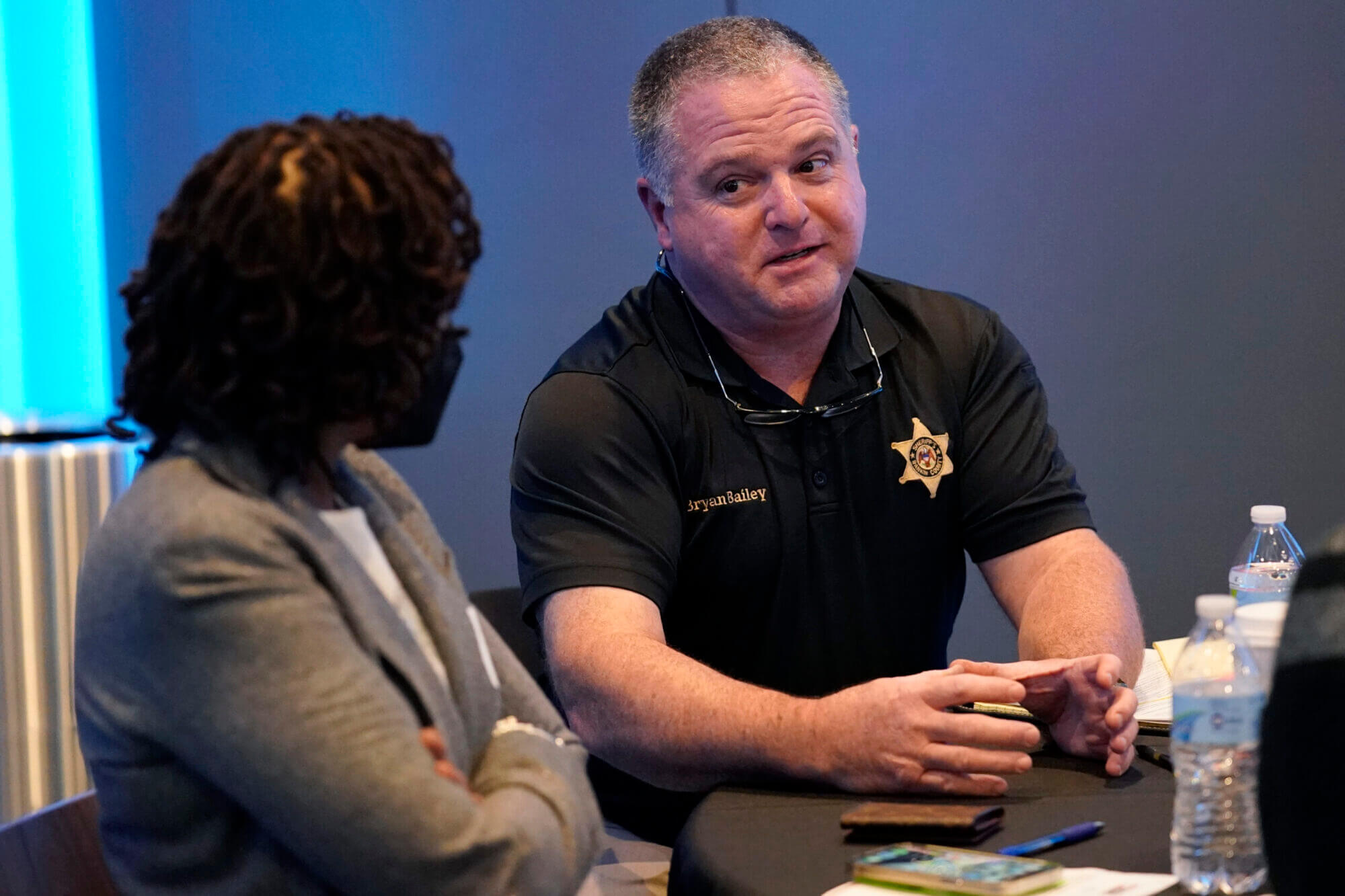

The lawyer for Rankin County Sheriff Bryan Bailey defended the sheriff’s use of trusties on his family’s chicken farm, saying it was part of an inmate work program authorized by statute. But four trusties who said they worked at the farm were released from the Rankin County Detention Center before 2021, when the only statute governing a work program for jail inmates was passed.
Mississippi Today and The New York Times reported in a joint investigation Thursday that Bailey allegedly used inmates under his supervision to spray weedkiller, cut grass and muck out chicken houses on McLain Farms, owned by Bailey’s mother. Former trusties said they were expected to keep that work secret.
In a statement released Thursday to a few local news organizations, the lawyer, Jason Dare, acknowledged that trusted inmates, known as trusties, had worked on the farm, but insisted they were always paid “according to statute.”
“That’s absolutely a lie,” said one of the former trusties who worked on the farm. He maintained he was never paid for that work.
Dare’s statement makes apparent reference to a section of a 2021 state law that authorized Rankin County to establish a pilot work release program for jail inmates. That law requires participating employers to pay inmates at least the “prevailing wage” for their position. While that statute empowers the department to keep 15% of the inmate’s wages, Dare said the sheriff keeps none.
Mississippi Today interviewed two former trusties who participated in the work release program, which allows inmates to work at local businesses and deposit their earnings in personal savings accounts. Those former trusties said they used their savings from work release to pay their fines, hire lawyers and save for cars.
But jail logs show that the four former trusties who told Mississippi Today they worked on the farm were released from the jail before the sheriff’s department established the work release program in 2021. There is no statute covering the payment of jail trusties who do not participate in a work release program.
It is unclear how trusties were paid prior to the work release program. The sheriff’s department did not fulfill a request made early this month for records of any payments made to trusties for their work on or off jail property, for which Mississippi Today paid the department $150.
At least three former trusties said they were never paid for their work on the farm. Those who witnessed some trusties getting paid said the sheriff would pay them in cash – “rolls of twenties,” one specified. Dan Pacholke, a corrections consultant and co-founder of the Sustainability in Prisons Project, raised concerns about transparency in such an arrangement, because cash payments are impossible to track.
Ted Booth, executive director of the Mississippi Joint Committee on Performance Evaluation and Expenditure Review, said as far as he knew, a list of eight participating employers in his committee’s 2024 report on Rankin County’s work release program was exhaustive. McLain Farms does not appear on that list.
But even if McLain Farms had been on the list, former state Rep. Nick Bain, who voted for the law in 2021 and has since served on the Mississippi Ethics Commission, said it could be unethical for a sheriff’s family business to be a participating employer in such a program. He said that could be a potential violation of the state’s constitution and ethics code, which prohibit public officers from having an interest in any contract with their county of employment while in office.
Bailey did not respond to a request for comment.
Steph Quinn is a Roy Howard Fellow at Mississippi Today.
This story was published with the support of a grant from Columbia University’s Ira A. Lipman Center for Journalism and Civil and Human Rights, in conjunction with Arnold Ventures, a nonprofit research foundation that supports journalism.
The post Statute invoked to defend Rankin sheriff didn’t exist when inmates worked on family farm appeared first on Mississippi Today.
- Scott Colom raised most money, but Cindy Hyde-Smith has most cash before March primary - February 21, 2026
- Patients face canceled surgeries and delayed care amid UMMC cyberattack - February 20, 2026
- Goal is ‘better alignment, not bigger government’ for Mississippi tourism - February 20, 2026